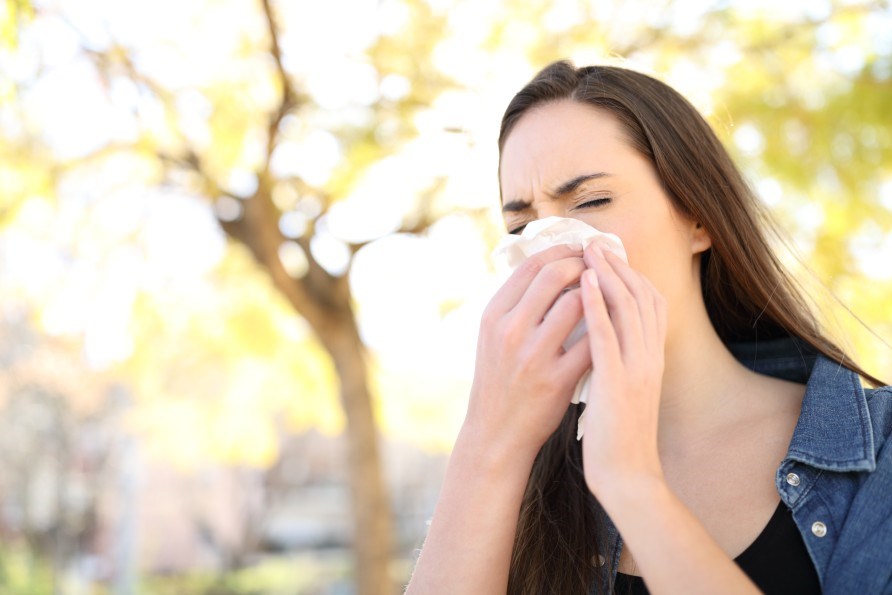Pollen Allergy
Pollen allergy is a common allergy that many of us are affected by. Read more about pollen allergy, which products can help and get advice on what you can do yourself to reduce your allergy problems.
- Symptoms of pollen allergy
- Dietary supplements for pollen allergy
- Tips for relieving pollen allergy yourself
 During the pollen season, many people get problems such as nasal congestion, sneezing and itchy eyes.
During the pollen season, many people get problems such as nasal congestion, sneezing and itchy eyes.
Symptoms of pollen allergy
Pollen allergy, or hay fever as it is also known, is a very common form of allergy. Pollen allergy occurs when the immune system confuses harmless substances, such as birch and grass pollen, with dangerous substances that the body needs to fight. The body then reacts with various symptoms such as nasal congestion, a runny nose, sneezing and itchy and red eyes. Fatigue is also a common symptom of pollen allergy. Many people get mild problems and can control their allergies in different ways, but some people can get asthma-like problems such as coughing and shortness of breath and need to see a doctor.
Dietary supplements for pollen allergy
There are several types of supplements that are linked to allergy problems, and which are popular to take before and during the season. Among others, the flavonoid quercetin and the enzyme bromelain have appeared in studies with interesting results. Another dietary supplement that has received much attention in connection with seasonal allergies is pine bark extract. Pine bark extract is rich in a substance called proanthocyanidins, a type of flavonoid found in blueberries and other plants where they have antioxidant effects. In a Canadian study(1), 39 people were examined for 5-8 weeks before the birch pollen season, where some of the participants received dietary supplements with the pine bark extract pycnogenol and the rest received a placebo. The results showed that the people who received supplements of pine bark extract showed up to 35% less allergy symptoms compared to the placebo group. Pine bark extract does not cause any irritating side effects like traditional treatments can.
Tips for relieving pollen allergy yourself
Pollen is spread by the wind and is therefore almost impossible to avoid if you go outdoors during the pollen season. However, there are several things you can try in everyday life to alleviate your discomfort. A tip is to keep the windows closed during the day when pollen levels are at their highest, and instead make sure to ventilate during the night and early morning. Since pollen easily gets stuck in textiles, it is also a good idea to change clothes when you have been outdoors for a while. Laundry should also not be hung to dry or ventilate outdoors. It can also help to shower before bedtime in order to rinse pollen out of your hair that you would otherwise inhale during the night. Finally, it may be helpful to avoid smoking and smoky environments, as allergy symptoms are exacerbated by tobacco smoke.
There are also over-the-counter medicines for pollen allergy that can be used for temporary problems. These usually contain antihistamines or cortisone that fight the allergy and counteract the symptoms. These drugs are often effective, but it is also common for them to cause side effects such as fatigue. Over-the-counter medicines for pollen allergy are available in the form of, for example, tablets, nasal sprays and eye drops.
NB! Keep in mind that if you have severe problems with your allergy, you may need to see a doctor and get prescription medicine.

